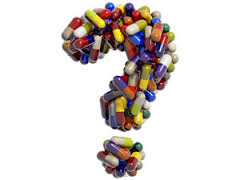Thread: Elevated TSH and Poor Response
-
January 5th, 2011, 08:28 PM #1
 Elevated TSH and Poor Response
Elevated TSH and Poor Response
Dr. Potter- I was wondering if you believe that elevated TSH can cause poor response to stims or reduced antral follicle count? I had a failed cycle in November. I am 34 w/ no history of infertility at all. FSH 7.3. E2 low at baseline. My antral count was shockingly reduced (7). My TSH was quite elevated. It was 15 the month prior to my cycle and at that point my synthroid dosage was upped but my TSH was only reduced to 9 by the start of stims.
Thank YouLast edited by bluex2; January 5th, 2011 at 09:46 PM.
-
January 6th, 2011, 10:20 PM #2
 Moderator
Moderator

- Join Date
- Dec 2010
- Location
- Newport Beach, California
- Posts
- 441
- Post Thanks / Like

- Blog Entries
- 12
- Downloads
- 0
- Uploads
- 0
The elevated thyroid stimulating hormone (TSH) itself is probably a symptom of the problem rather than the cause. Elevated TSH is caused by decreased thyroid hormone production usually. It can be correlated to poor response in the sense that and elevated TSH is most commonly caused by an autoimmune reaction against the thyroid (Hashimoto's Thyroiditis). The inflammed thyroid makes less thyroid hormone and so the pituitary releases more TSH to try to get the thyroid hormone levels up. Patients with Hashimoto's may have auto-antibodies that cross-react with either the ovary or the FSH receptor itself, causing inflammation of the ovary and occasionally destruction of the follicles and decreased ovarian reserve. High dose corticosteroid treatment would be a consideration in a case like this one.
Daniel A. Potter, MD
Medical Director, HRC Fertility Newport Beach, California
Laboratory Director, Natera (formerly Gene Security Network)
http://www.amazon.com/What-When-You-...keywords=hanin
http://www.danielapottermd.com
@ivfgenderselect
-
January 7th, 2011, 02:48 PM #3
Thank you for your response Doctor Potter. I really appreciate the fact that you take time out of your busy schedule to help people like me! I do, in fact, have chronic lymphocytic thyroiditis. I had a complete thyroidectomy after my second son was born. At that time I was tested and was found to have increased levels of antithyroglobulin antibodies and antithyroid peroxidase antibodies. I have a few other questions if you don't mind.
1. Could the fact that my FSH and E2 are not elevated (yet) be evidence that my ovaries are still in the inflammatory stage of the disease and not severely depleated/destroyed yet?
2. Do you think it would be necessary to have a positive blood test for anti-ovarian antibodies prior to treament with steriods?
3. What is the recommended dosage of steriods for this type of situation and how long must they be taken to "cool down the ovary and give the inflammation a chance to disipate?" (I was taking notes during your speach last night!)
I am turning 35 in May and am somewhat eager to start my next cycle...
Thank You
-
January 13th, 2011, 11:29 PM #4
 Moderator
Moderator

- Join Date
- Dec 2010
- Location
- Newport Beach, California
- Posts
- 441
- Post Thanks / Like

- Blog Entries
- 12
- Downloads
- 0
- Uploads
- 0
I am glad that your were able to hear me on the RESOLVE Webcast last night. I will answer your questions. :
1. Yes, I do believe that is a strong possibility.
2. I would suggest getting the tests but because of the limitations of such an anti-body test, having a negative test does not mean that you do not have antibodies attacking your ovary. I would offer you steroids whether the test is positive or not.
3. I would start the steroids 2-3 weeks prior to initiating stims. The dosage would depend on which steroid agent was being administered but most doctors know what high dose high potency treatment means. I would have to review your medical history in a lot more detail than we are capaple of doing over the internet to make a hard recommendation in your individual case.Daniel A. Potter, MD
Medical Director, HRC Fertility Newport Beach, California
Laboratory Director, Natera (formerly Gene Security Network)
http://www.amazon.com/What-When-You-...keywords=hanin
http://www.danielapottermd.com
@ivfgenderselect



 Reply With Quote
Reply With Quote











So happy for you Treens, congratulations Sent from my SM-A225F using Tapatalk
Healthy baby girl :)